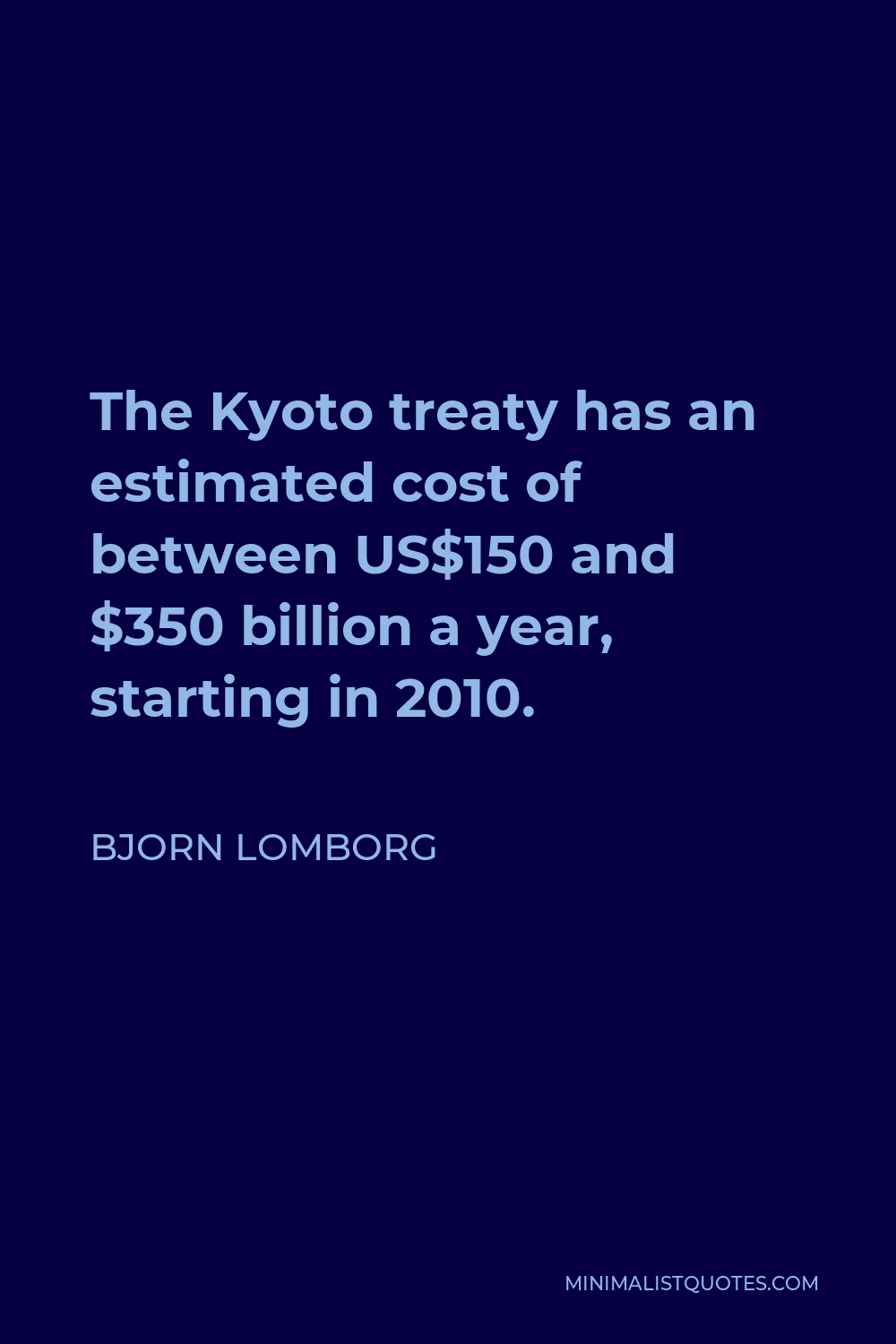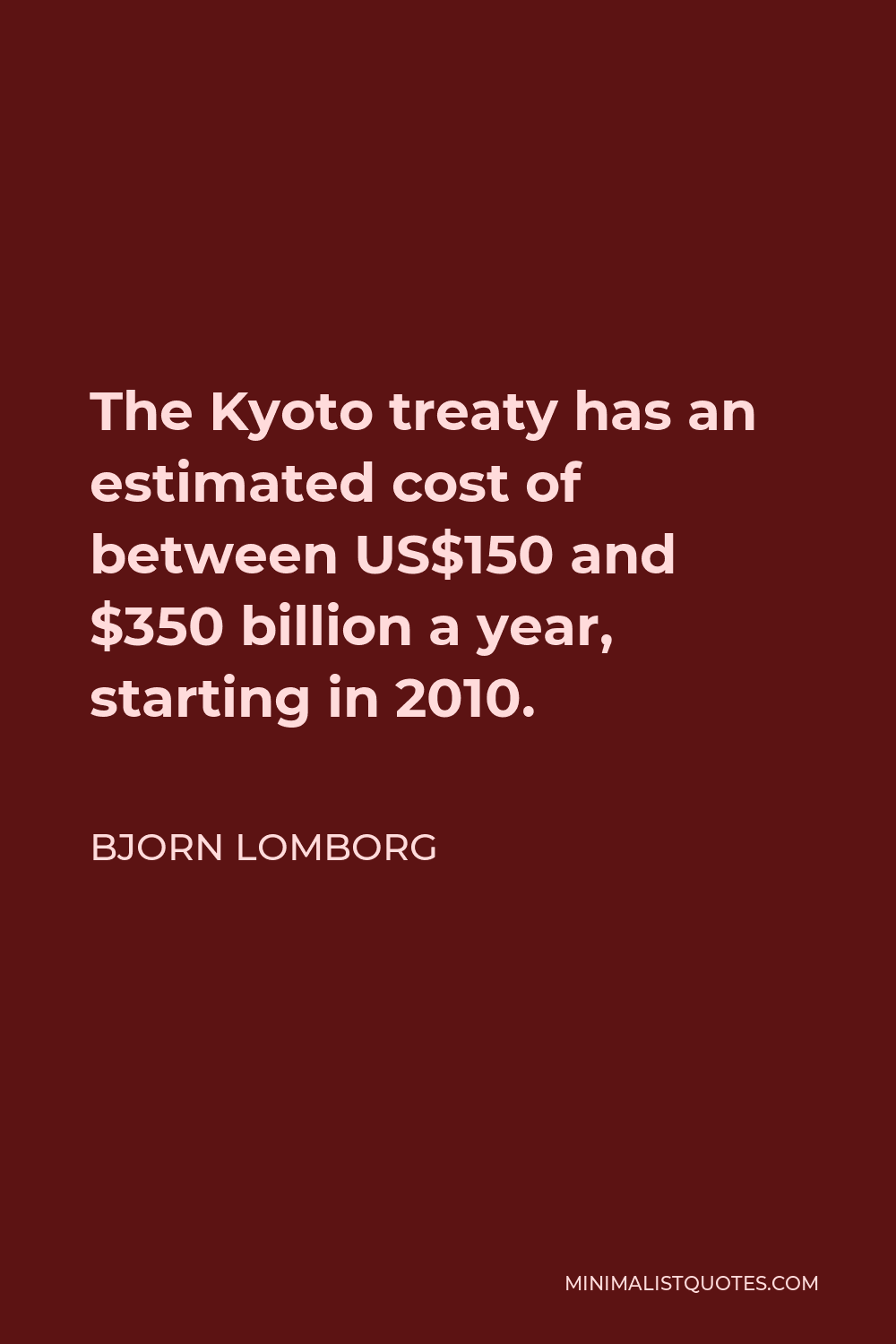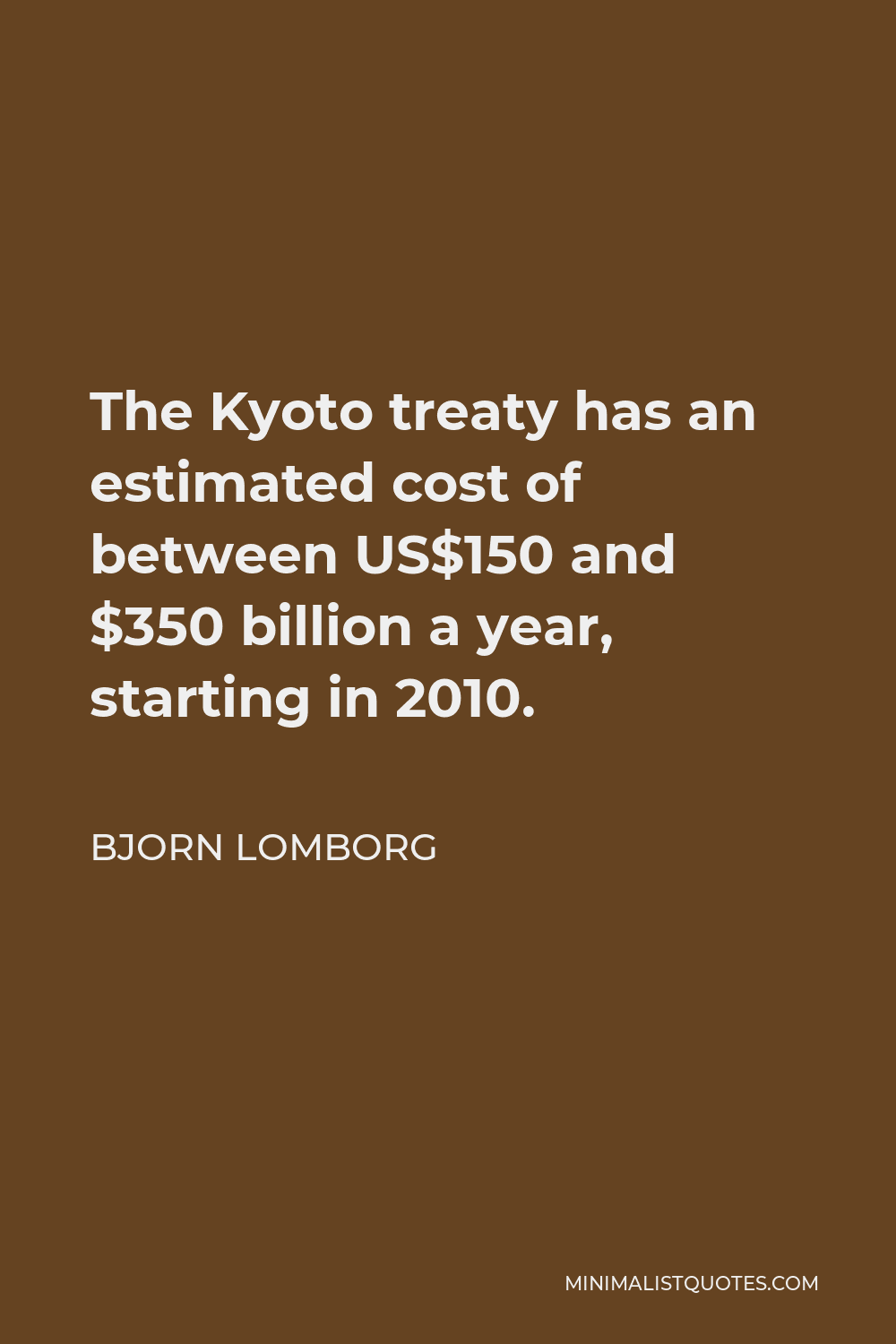So it’s mainly a question of helping the Third World overcome the effects of global warming.
BJORN LOMBORGThe Kyoto treaty has an estimated cost of between US$150 and $350 billion a year, starting in 2010.
More Bjorn Lomborg Quotes
-





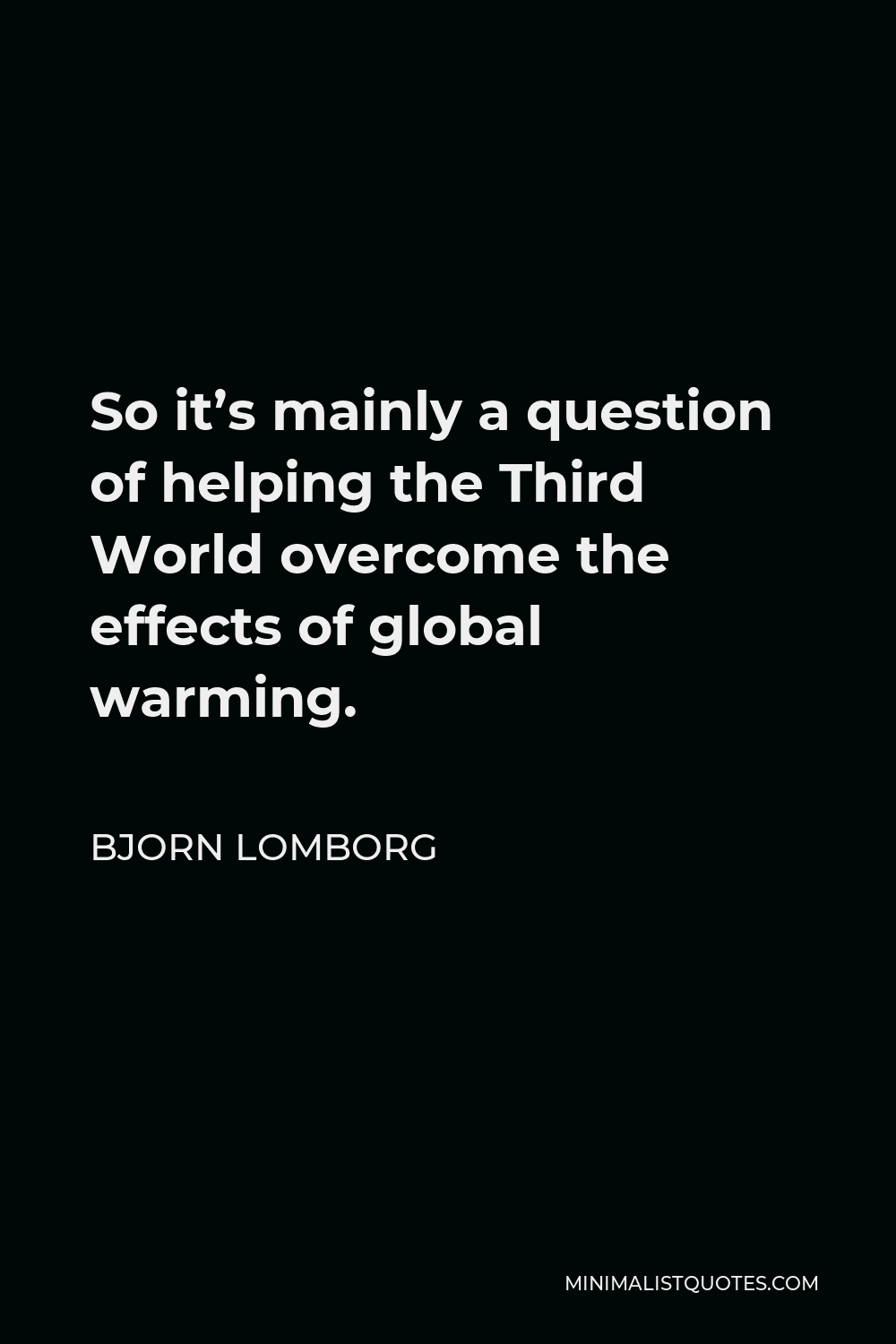
-





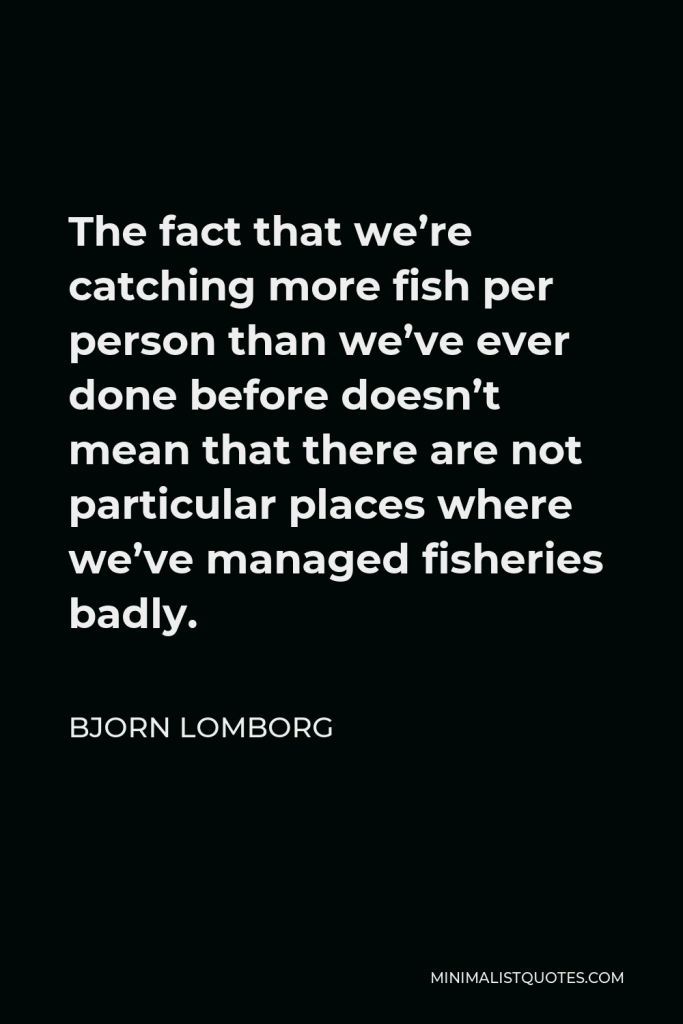

The fact that we’re catching more fish per person than we’ve ever done before doesn’t mean that there are not particular places where we’ve managed fisheries badly.
BJORN LOMBORG -







There is no question that global warming will have a significant impact on already existing problems such as malaria, malnutrition, and water shortages. But this doesn’t mean the best way to solve them is to cut carbon emissions.
BJORN LOMBORG -






Obviously any group that has to have funding also needs to get attention to their issues.
BJORN LOMBORG -






I really try to say things as they basically are and it so happens that it is a good message that things are getting better, but there are still problems.
BJORN LOMBORG -





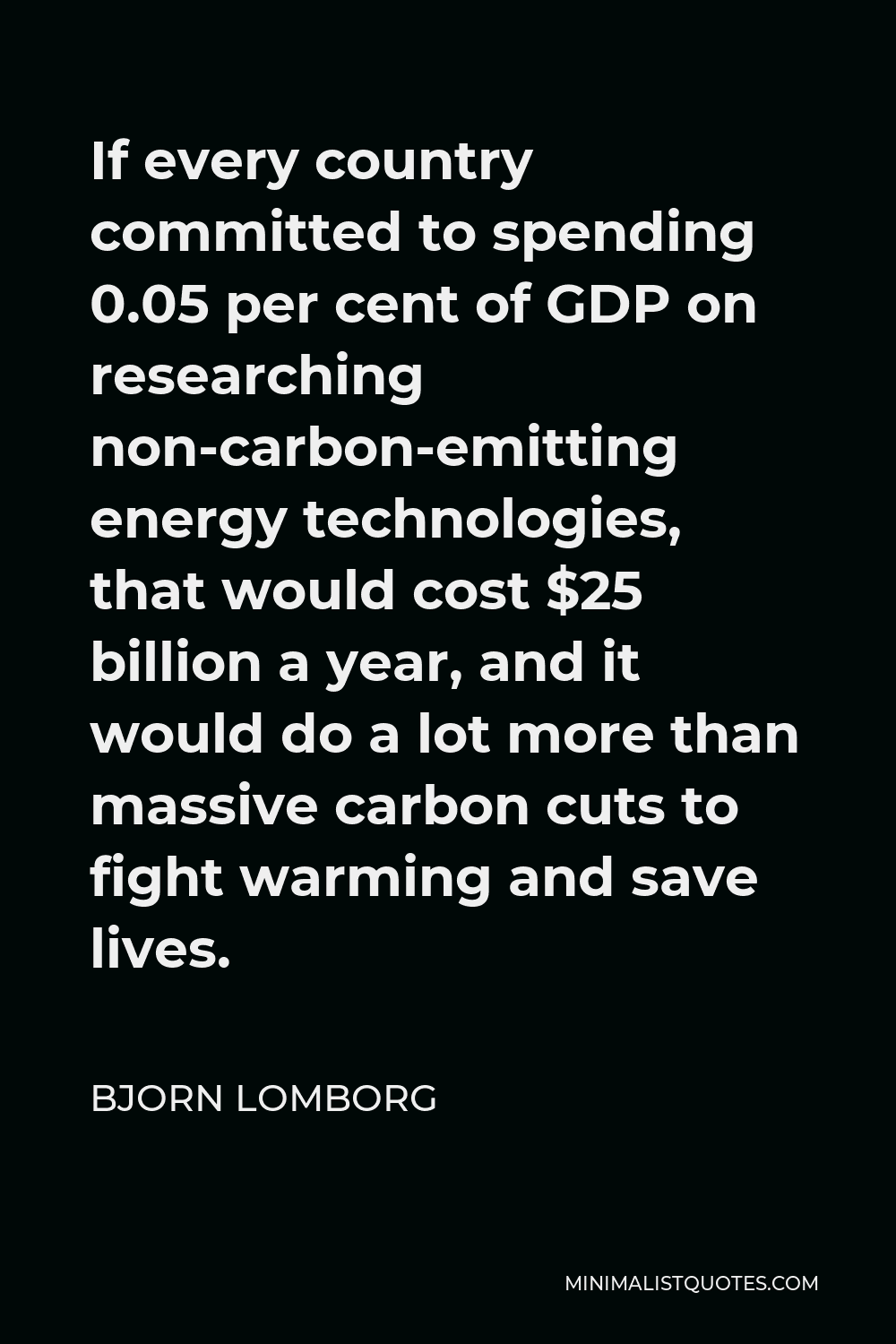
If every country committed to spending 0.05 per cent of GDP on researching non-carbon-emitting energy technologies, that would cost $25 billion a year, and it would do a lot more than massive carbon cuts to fight warming and save lives.
BJORN LOMBORG -






I tentatively believe in a god. I was brought up in a fairly religious home. I think the world is compatible with reincarnation, karma, all that stuff.
BJORN LOMBORG -






I found university a little dispiriting. I thought I would enter the great halls of Plato, but instead I entered the halls of an intellectual sausage factory. I wanted to do something not on the main course, and chose the environment.
BJORN LOMBORG -





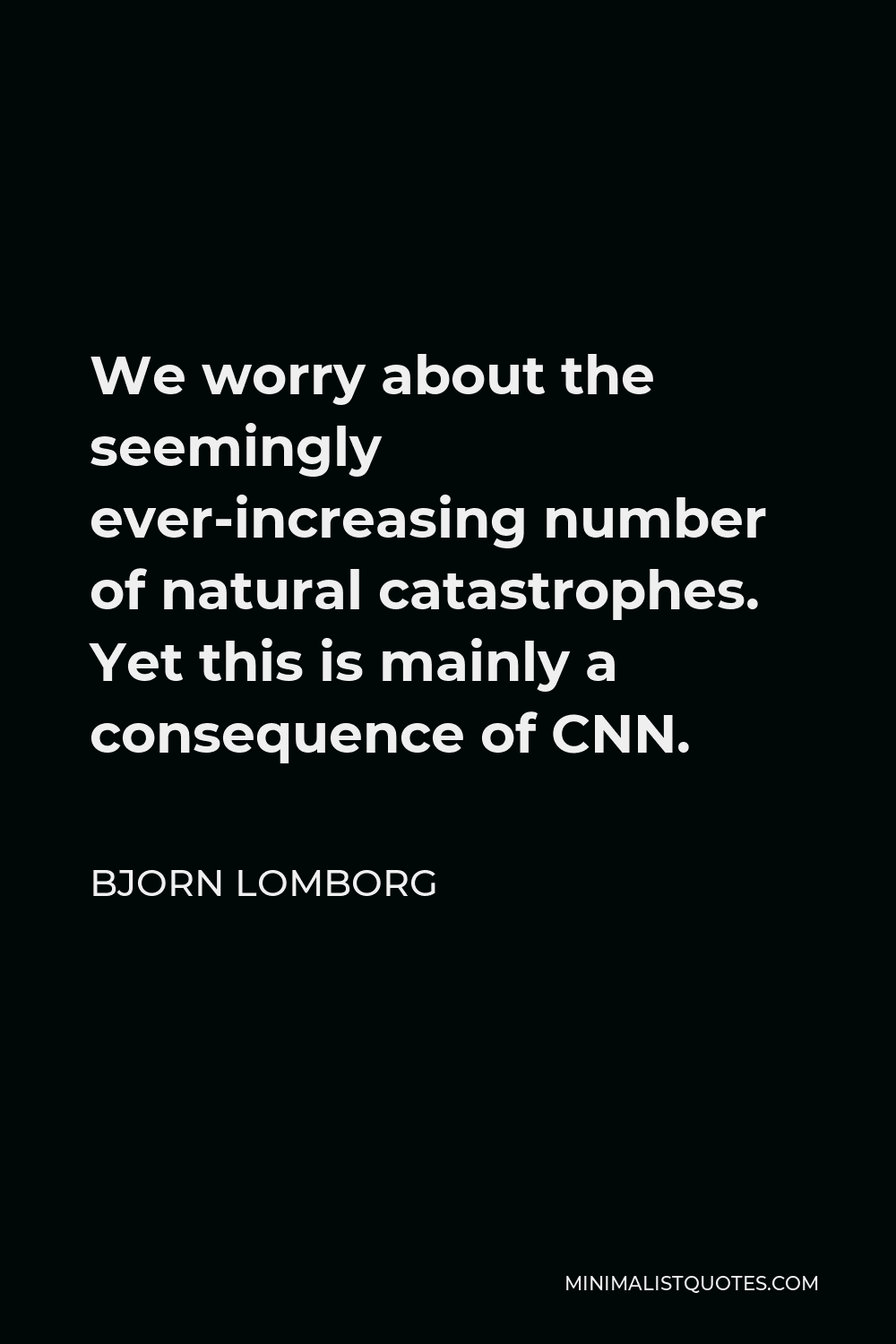
We worry about the seemingly ever-increasing number of natural catastrophes. Yet this is mainly a consequence of CNN.
BJORN LOMBORG -





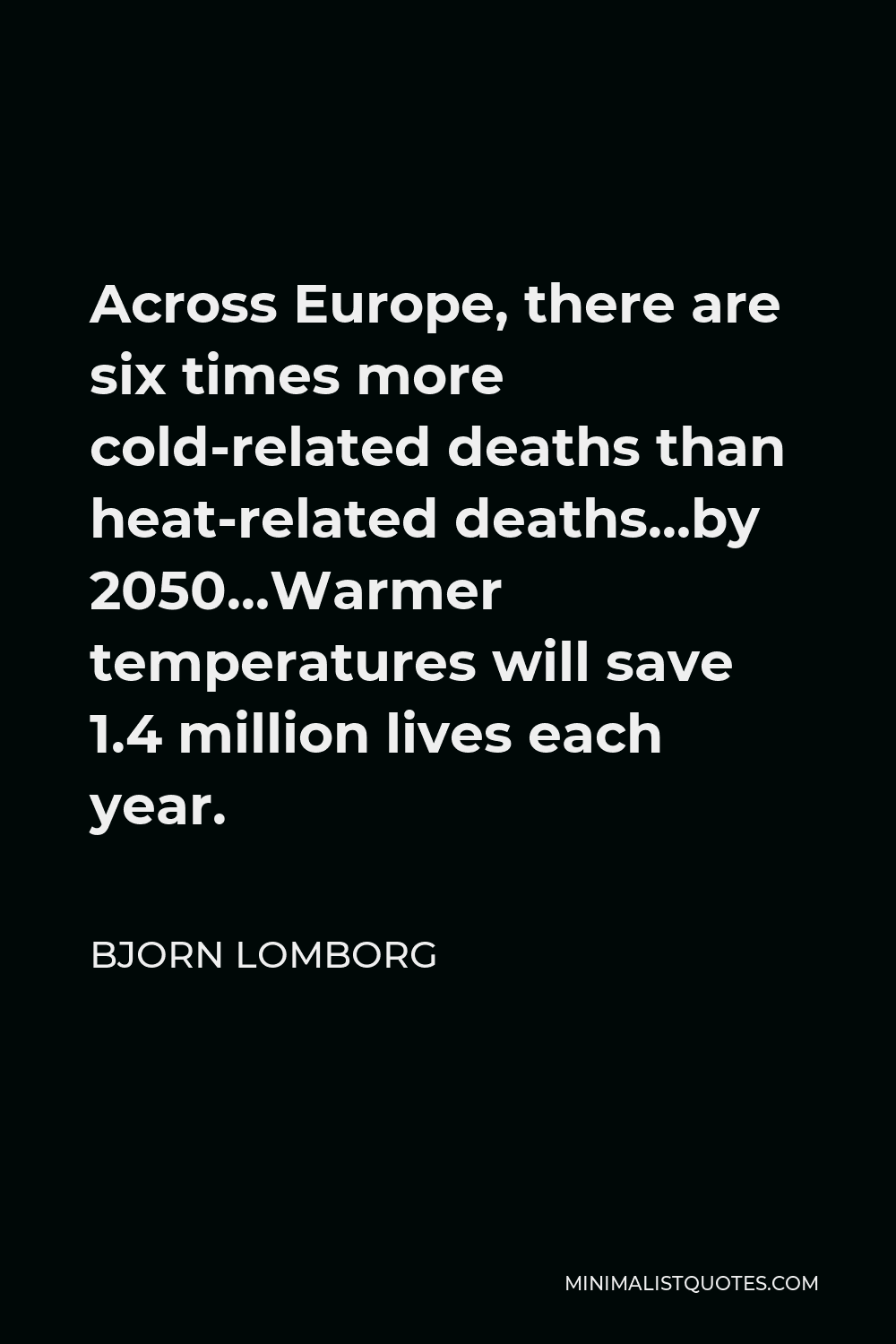
Across Europe, there are six times more cold-related deaths than heat-related deaths…by 2050…Warmer temperatures will save 1.4 million lives each year.
BJORN LOMBORG -





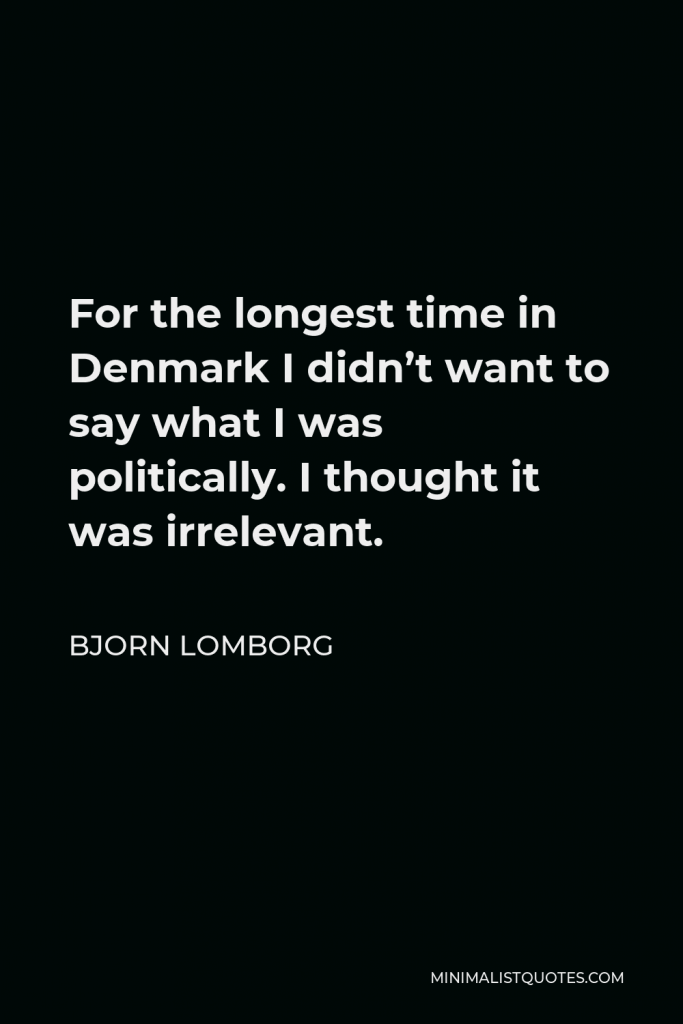

For the longest time in Denmark I didn’t want to say what I was politically. I thought it was irrelevant.
BJORN LOMBORG -






Of course, the world is full of problems. But on the other hand it’s important to get the sense… are we generally moving in the right direction or the wrong direction?
BJORN LOMBORG -





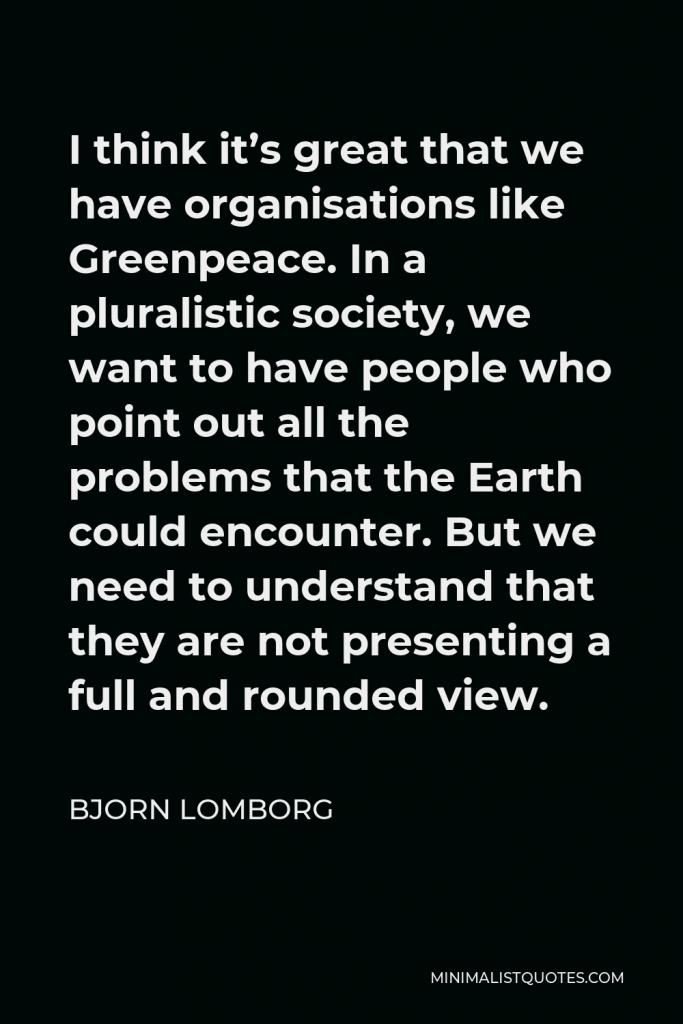

I think it’s great that we have organisations like Greenpeace. In a pluralistic society, we want to have people who point out all the problems that the Earth could encounter. But we need to understand that they are not presenting a full and rounded view.
BJORN LOMBORG -





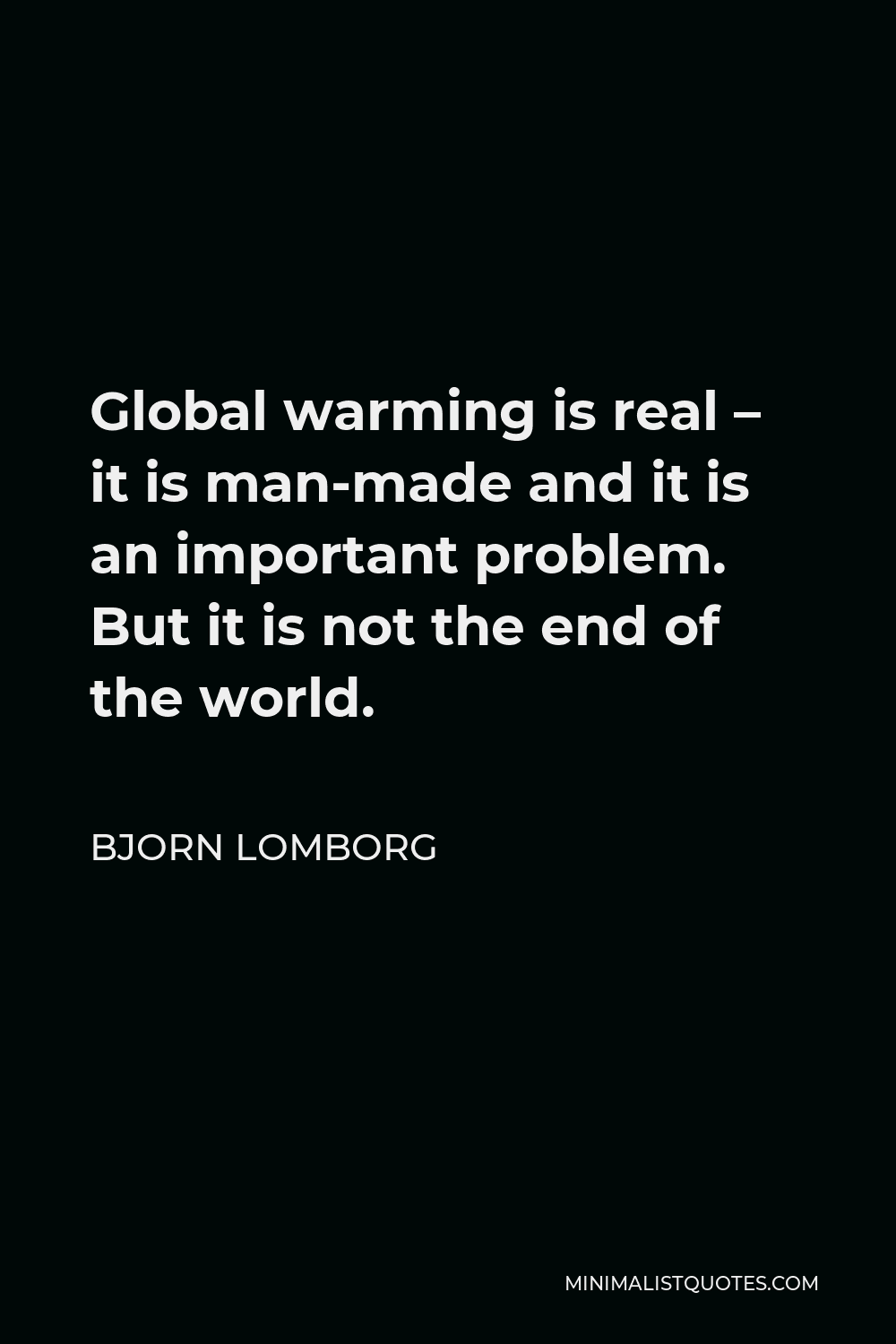
Global warming is real – it is man-made and it is an important problem. But it is not the end of the world.
BJORN LOMBORG -






We need to invest dramatically in green energy, making solar panels so cheap that everybody wants them.
BJORN LOMBORG -





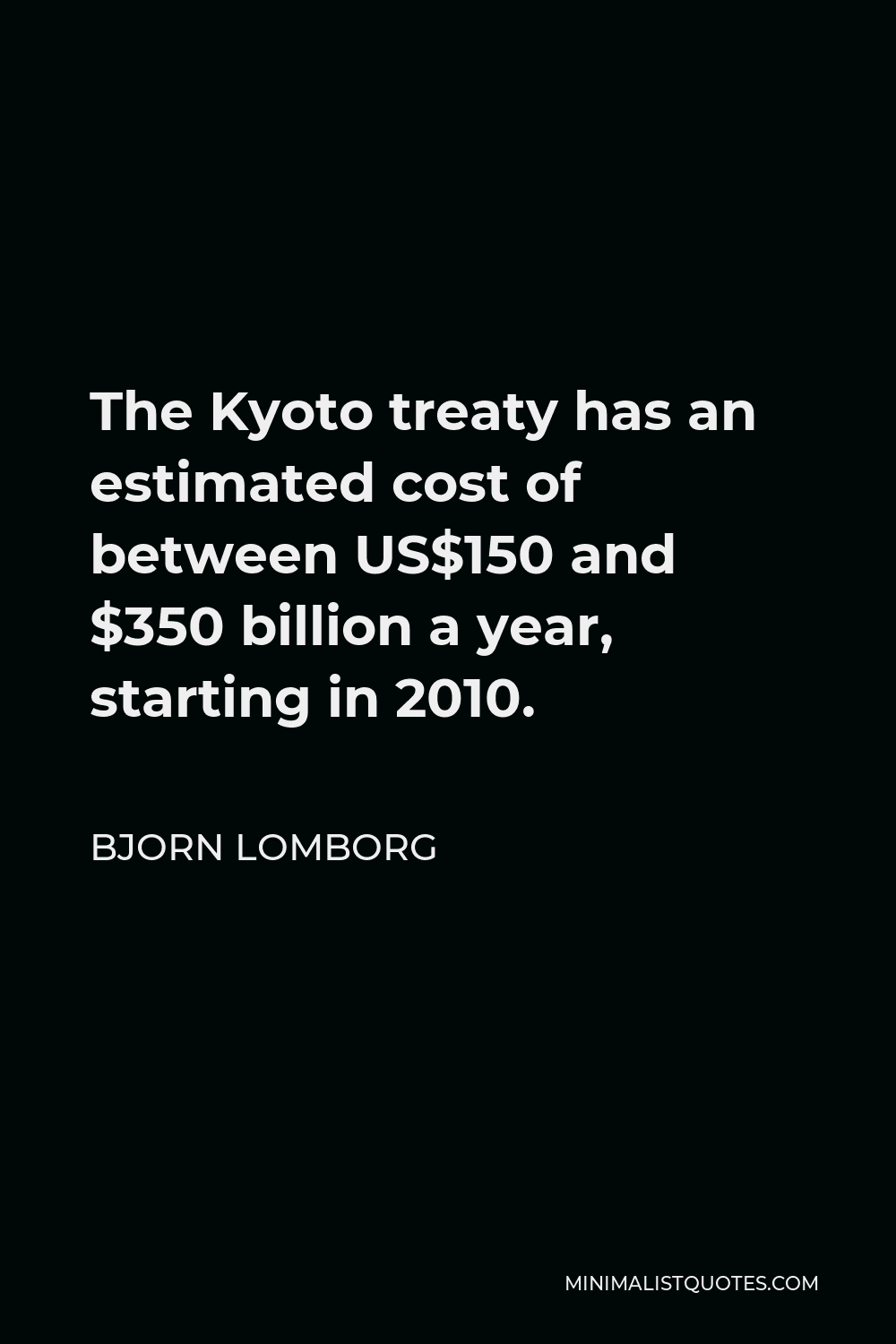
The Kyoto treaty has an estimated cost of between US$150 and $350 billion a year, starting in 2010.
BJORN LOMBORG

